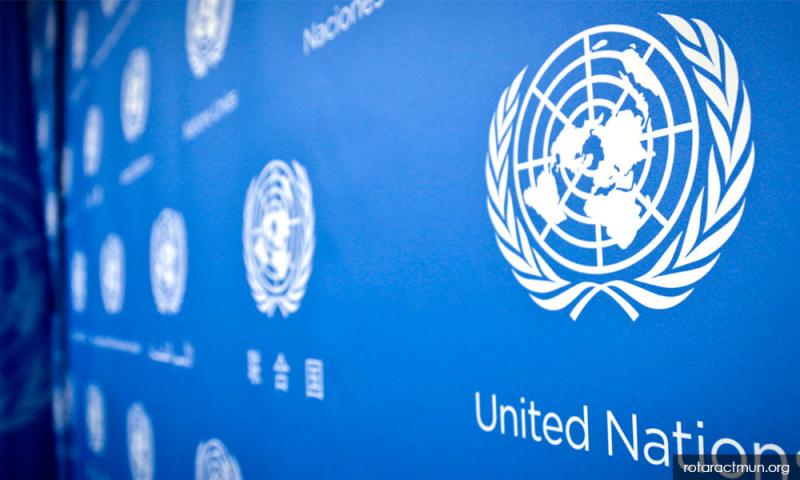LETTER | Member states' commitment, cooperation key to UN effectiveness
LETTER | Oct 24 is United Nations Day. Following the end of WWII and the entry into force of its founding treaty, the Charter, the United Nations (UN) was officially established on Oct 24, 1945.
Since then, this day is celebrated every year around the world to commemorate UN's anniversary.
The predecessor to the UN was the League of Nations, established in 1919 after WWI under the Treaty of Versailles, which entered into force on Jan 10, 1920.
From that date, the League of Nations, which had 42 member states, officially began its activities until it ceased operation on April 20, 1946.
All the assets of the League of Nations were transferred to the UN, which is now the largest multi-purpose international institution with 193 members states.
The main reason for the establishment of the UN was and still is to prevent another world war, as was the idea of creating the League of Nations.
Where the latter could not prevent WWII and caused its collapse, will the former succeed in preventing WWIII?
Failures of the predecessor
In today's intricate global security environment, the ‘intensified great power competition’, the presence of nuclear weapons and the threat posed by them, there is no clear cut yes-or-no answer to that apparently simple but complex question.
If the UN succeeds in averting WWIII, there will certainly be more anniversary celebrations for it, but if it doesn't, God forbid, prepare for its funeral and look for a successor to facilitate international affairs in a "New World Order".
The success or failure of any international organisation in achieving its goals depends on the commitment and cooperation of its members as well as all those who work for it.
Despite the weakness of its collective security system, the League of Nations could have succeeded in achieving its goals if the member states had cooperated with it, but they did not, and this caused its failure.
The fear is that if all member states of the UN do not give their full support to the UN in achieving its goals, despite a strong collective security system, it may fail like its predecessor, and everyone loses.
Countries at war
The current war between Russia and Ukraine and its negative effects on other countries, the deplorable conditions of Palestine, Yemen, Syria and Afghanistan show the lack of commitment and cooperation of some members of the UN to find peaceful solutions to conflicts.
The lack of commitment and cooperation from the member states prevented the UN from achieving its goals, namely to maintain international peace and security; develop friendly relations between nations; achieve international cooperation and play a role in the peaceful settlement of international disputes.
As the centre for coordinating the actions of nations, the UN need the members’ support in achieving its goals, without which neither its collective security system function well nor its mandate to play an effective role in the settlement of international disputes.
In this turbulent polarised world, conflict is unavoidable, but war is, provided an amicable solution to conflict.
UN’s role
Certainly, the duty of peaceful solution of a conflict, irrespective of its nature - national or international, rest with the disputants.
Nevertheless, international institutions such as the UN can play a role to prevent the conflict from turning into a full-scale war. However, seeing conflicts turning into deadly and destructive wars in front of the eyes of the UN, it is difficult to say it has played that role effectively.
This is not to say that the UN has made no effort to achieve world peace, but that it has done so with little or no concrete results, largely due to the lack of cooperation among its members.
For example, if countries with weapons of mass destruction cooperated with the UN or its predecessor, the League of Nations in disarmament missions, we would see a world free of such weapons today.
But no, such weapons are still stockpiled in some countries and their mere presence is considered a threat to international peace and security.
The main reason for the downfall of the UN’s predecessor was the non-cooperation of its member states, it is hoped that this will not happen to the UN.
States should cooperate with the UN to effectively play its critical role in promoting stability, security, human rights and economic development.
In short, the UN, although in need of some structural reform, is still relevant, and must be preserved and strengthened by all who represent it to see the organisation's day celebrations in the years to come.
As Winston Churchill once said: "The UN was created not to take us to heaven, but only to save us from hell."
However, it will be difficult for the UN to "save us from hell" if member states, especially the great powers, fail to cooperate to prevent WWIII.
MOHAMMAD NAQIB EISHAN JAN is a professor at the International Islamic University of Malaysia.
The views expressed here are those of the author/contributor and do not necessarily represent the views of Malaysiakini.
RM12.50 / month
- Unlimited access to award-winning journalism
- Comment and share your opinions on all our articles
- Gift interesting stories to your friends
- Tax deductable
